We are often asked by readers about how many WordPress plugins should they install on their site? The real question everyone wants to know is how many plugins are too many?
Since there are a lot of misconceptions about WordPress plugins, and how they can impact website speed, performance, and security, we want to explain this topic in details for our non-techy users.
In this article, we will explain how many WordPress plugins should install on your site. We will also talk about how plugins can and cannot affect your website. Our goal is to help you learn how to run your website with the perfect combination of WordPress plugins.
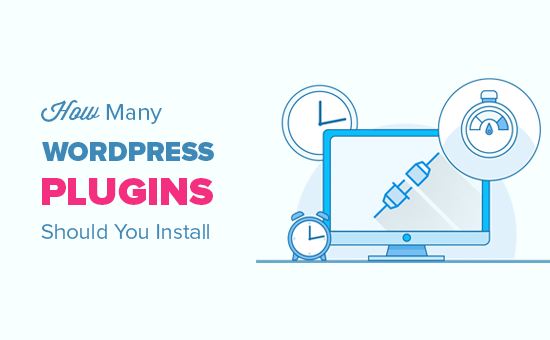
About WordPress Plugins and How They Work
Before we dig deeper, let’s talk a little bit about WordPress plugins and how they work.
WordPress plugins are like apps for your website. They help you add new features and website functionality such as making an online store, adding contact forms, and more.
Like WordPress itself, plugins are also written in the PHP programming language. PHP code runs on your website’s hosting server and utilizes its resources.
This is why you must choose a good WordPress hosting company that gives you easy tools to manage those resources and run your website efficiently.
To learn more, see our detailed guide about how WordPress plugins work. If you want to dig even deeper, then take a look at how WordPress actually works behind the scenes (Infographic).
Ever since WordPress 1.2 (when support for WordPress plugins was added), plugins have been a blessing for users. WordPress without plugins is like a toy store with no toys. That’s no fun.
Why are Plugins Essential for WordPress Websites
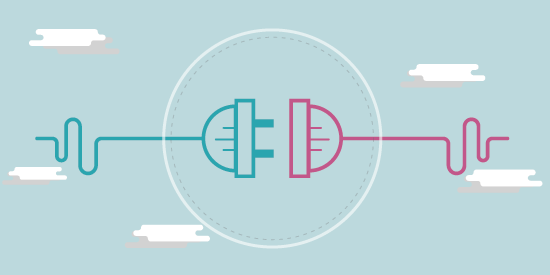
Even though the WordPress core provides a strong publishing framework, it is the plugins that are widely responsible for making WordPress the most popular website builder in the world.
The number of total WordPress plugins available has grown over the years. At the time of writing this article, there are more than 54,000 free WordPress plugins available in the official plugins directory.
Apart from these free plugins, there are also thousands of premium WordPress plugins sold by third-party companies and developers.
Plugins can help you improve SEO, increase security, manage users, and more. It would be quite difficult to grow your business without using WordPress plugins on your website.
How Did WordPress Plugins Get a Bad Reputation
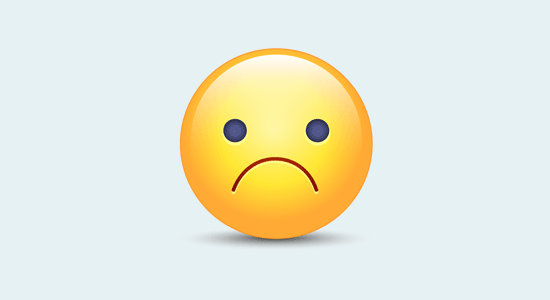
The purpose of plugins is to extend WordPress to do almost anything you can imagine. However, now we see a sense of fear or restraint towards plugins from many beginner users.
People get worried about performance, security, reliability, etc. This is mainly because designers, developers, and web hosting support technicians get really frustrated when they are troubleshooting a client’s websites.
In their frustration, they make comments like ‘have fewer plugins‘, or ‘it is the plugins that are slowing down your site‘.
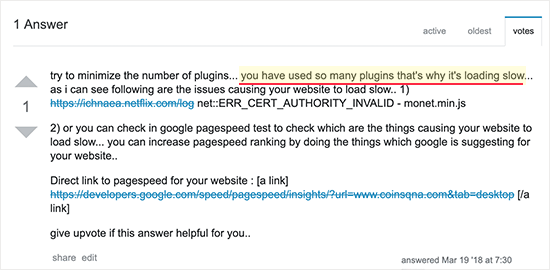
These statements have resonated throughout social media, in-person meetups, and conferences. The biggest issue with those statements is their ambiguity.
What is less? How many WordPress plugins are too many?
We believe the problem is not the quantity of plugins, but rather the quality.
You can have dozens of good WordPress plugins running on your website without any issues, but an addition of a single poorly coded plugin can slow down your website.
When this happens and you ask for troubleshooting help, your hosting company support technician or another developer will blame the quantity of plugins.
This makes sense because troubleshooting a website with 5 plugins is much easier than troubleshooting a website with 30. Quantity of plugins make their job harder.
It’s extremely important to take any such advice resulting from frustration with a bit of caution.
You should politely ask them to identify which specific plugin is causing the issue because simply blaming the quantity is a result of laziness.
To put this in perspective, our WPBeginner website has 62 active plugins right now, and it loads extremely fast.
If we were to add one bad plugin that slows down the website, then we should only have to disable that one bad plugin (not all 62).
With that said, let’s take a look at how plugins can affect different aspects of your website.
How WordPress Plugins Impact Website Speed & Performance

There are many different types of WordPress plugins, and they each impact your website performance differently.
There are plugins that affect mainly the front-end. For example, page builder plugins, contact forms, galleries, sliders, etc.
Then there are plugins that are mainly made to perform tasks within the back-end or admin area. For example, WordPress backup plugins, editorial plugins, various background processes, etc.
There are also plugins that run everywhere including admin area and front-end. For example, SEO plugins, WordPress firewall plugins, and more.
A WordPress plugin’s impact on website speed and performance depends on where that plugin is being loaded.
For example, plugins that are only loaded when you are doing specific tasks in the WordPress admin area usually will not impact your website’s performance.
On the other hand, plugins that are loaded on the front-end are likely to have a larger performance footprint.
Also plugins that perform routine background processes like broken link checking, 404 monitoring, etc can also significantly slow down your overall website performance.
Plugins can impact your site performance by:
- Making additional HTTP requests – Some plugins (mainly front-end ones) may require custom styling or scripts to work properly. Because of this, they may add extra JS and/or CSS file(s). Loading these files require making additional HTTP requests which slows down your page load time.
- Additional DB Queries – Some plugins may increase your database queries. For example, plugins to display popular posts, related posts, or anything else that pulls database elements and displays it on the front-end.
- Background Processes & Database Writes – Some plugins can take up a lot of server resources while running background processes such as checking for broken links, monitoring and recording analytics like post views, etc.
Most good WordPress plugins will only load additional files when needed, and they will minimize the database calls. However, sometimes it is just unavoidable.
Luckily, there are optimizations available for most cases. Let’s take a look at a short term and a long term fix for these issues.
Before we do this, first make sure that you have caching enabled on your WordPress site. Without caching, your website will always be slow.
Now, let’s move on to other optimizations.
Fixing Additional HTTP Requests Issue
Plugins have to add additional HTTP requests (i.e JS and CSS file) to work out of the box. For example, when you install a contact form plugin, you want it to work and look good too.
People complain about additional HTTP requests while ignoring that they are sometimes necessary. Here is what an unstyled form would look like.
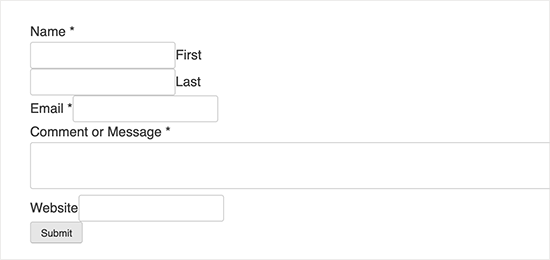
Most users would not like it, some would even think that it’s broken. Well, that is exactly what would happen if the contact form doesn’t add the additional HTTP requests to load CSS and JS files.
In short, the additional styles and scripts are needed for the plugin to function properly.
There are three ways to optimize the additional HTTP requests issue. All of them require some coding knowledge and WordPress know-how, but one will method is definitely easier than the others.
The first method would be to unregister the additional styles and scripts that are being loaded by the plugin. After that you can combine the plugin styles into your theme’s style.css file and combine the plugin scripts into your theme’s main JavaScript file.
The second method would be to conditionally load the plugin styles/scripts on pages where they are needed.
We have already explained both methods in our article about disabling additional scripts and stylesheets that WordPress plugins add.
As for folks who are not code-savvy, you can use a premium caching plugin like WP Rocket which allows you to minify and combine files with a single click. This will work for most cases, but in some cases it can cause conflicts with specific plugins.
With that said, you must understand that a few additional HTTP requests are not as significant as you may think. We are talking about milliseconds here. However if you have a lot of plugins that are adding additional HTTP requests, then this optimization will allow you to shave a few seconds off your load time.
A lot of non-techy business owners simply hire a WordPress developer from Codeable to speed up their website (which is a worthwhile investment).
Now that we have covered HTTP requests, let’s take a look at additional DB queries.
Fixing Additional Database Queries and Background Processes
Some plugins may increase the load on your database server. WordPress itself does a very good job at caching the queries and most well-coded plugins will not cause any significant issue.
However, if you have a high traffic website, then using database-driven plugins can become an issue especially if you don’t have proper server resources.
For example if you have a membership website or an online store with WooCommerce, then you are serving a lot of uncached requests. In this scenario the only real option is to use a managed WordPress hosting solution or even a specialized WooCommerce hosting solution.
Now there are some plugins that are extremely resource intensive, and you should avoid them at all costs.
For example, there are plugins that add various analytics functionality within WordPress such as some email opt-in plugin, website stats plugin, post views tracking plugin, etc. These plugins inefficiently write to the database on every page load which can significantly slow down your website.
You can track analytics in a more scalable manner with plugins like Google Analytics for WordPress by MonsterInsights or Jetpack Stats.
You can add email opt-in forms with more scalable tracking with plugins like OptinMonster or by using signup forms from your favorite email marketing services.
There are also plugins that monitor 404 errors and track broken links which can add heavy load and overwhelm the server resources. Instead of using those plugins, you should use a third-party cloud services like Ahrefs or SEMRush that automatically track broken links and offer a lot of other useful SEO insights as well.
If you don’t want a premium solution, then you can use a free tool like Broken Link Check which lets you check 300 pages at a time for broken links.
How WordPress Plugins Impact Security

Security is another major concern when it comes to installing WordPress plugins. Many users worry that having more plugins can make their site more vulnerable.
It is true, that a poorly coded WordPress plugin can be exploited by hackers and make your site vulnerable. However, it is also true for just about every software that exists.
Oversights are bound to happen. However, the best part about open source is that many people are using the software, which makes it faster for a vulnerability to be discovered and fixed.
You can keep your website secure by using a WordPress security plugin like Sucuri. They scan thousands of websites and will help you catch most security problems with a vulnerable plugin.
You can also protect your website by improving your overall WordPress security. This allows you to add layers of security before any vulnerability can be exploited by hackers.
WordPress Plugins and Reliability
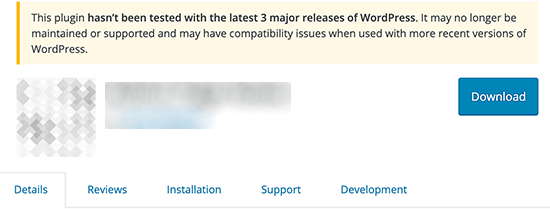
Some folks are concerned about a plugin’s reliability. What if the plugin gets discontinued? What if the updates are slow?
The beautiful part about the open source WordPress ecosystem is that there are always alternatives.
If you use a popular plugin, chances are that it will not be discontinued. If it is, then someone else will likely fork it and continue the development. That’s the power of open source. This is also how WordPress came into existence (previous platform was called b2/cafelog).
As long as you pick plugins with a good track record and reputable authors, then you will be fine.
Can I Avoid Plugins by Adding Code Snippets?
There are articles throughout the web that shows you: “How to do XYZ in WordPress without a plugin” (like this one).
The purpose of these articles is not to discourage using plugins but to show you how to learn code. There are basically three ways you can add code snippets to your site. You can add them to your functions.php file, a site-specific plugin, or use a plugin to add custom code snippets.
Regardless of which method you choose, adding code snippets to your website has the same performance impact as a stand-alone plugin.
If you install code snippets that are identical to a plugin, then basically you are running the plugin without installing it. The downside is that you won’t get any plugin updates or security fixes for that code.
For more information on this topic, see our guide on WordPress plugin vs functions.php file which one is better.
How Many WordPress Plugins Should You Install? How many WordPress Plugins are too many?
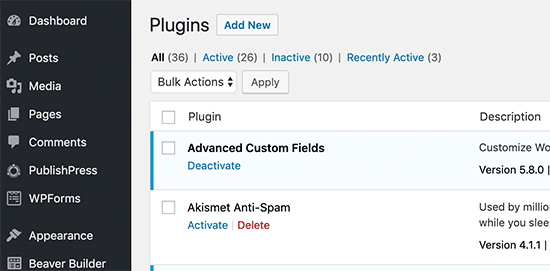
You should install as many WordPress plugins as necessary to run your website and grow your business.
On average, its quite common for a business website to have at least 20 – 30 plugins.
If you’re using WordPress to it’s full potential and have many advanced features, then this count can easily go into 50+.
For example, here’s the number of active plugins on our websites:
- WPBeginner – 62 active plugins
- OptinMonster – 67 active plugins
- WPForms – 54 active plugins
- MonsterInsights – 68 active plugins
- Syed Balkhi’s blog – 42 active plugins
- RafflePress – 17 active plugins
- WP Mail SMTP – 39 active plugins
These count should highlight that it’s not the quantity of plugins that slow down your website.
You will be fine with a large number of plugins, as long as you are using high-quality plugins that follow the WordPress coding standards.
Here is our website’s performance result via Pingdom.
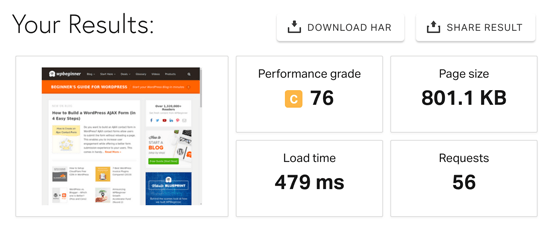
Despite using dozens of plugins and custom code snippets, our website still loads in half a second (479 milliseconds).
How to Pick the Best WordPress Plugins?
One of the most frequently asked question by our users is ‘how do I choose the best plugins for my website?’
If you are looking for a free plugin, then only download it from WordPress.org plugin directory. The official WordPress plugin directory also makes it easier to choose good plugins.
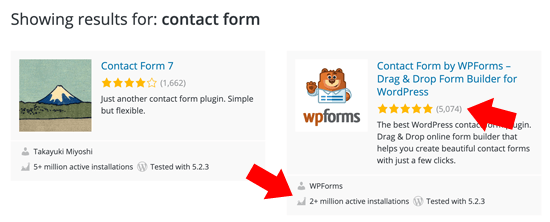
You can see a plugin’s rating and reviews provided by other WordPress users. You can also see when the plugin was last updated and how many websites have it installed.
On the other hand, if you are looking into a premium plugin, then make sure they are from a well-reputed WordPress company or developer. If you are unsure, then look around for reviews and testimonials.
For more details, see our complete guide on how to choose the best WordPress plugins.
If you are just starting out, then see our expert-pick of the essential WordPress plugins that every website should have. You can also check out WPBeginner’s WordPress plugins category where we regularly share the best WordPress plugins and how to use them.
We hope this article answered your questions about how many WordPress plugins should you install. You may also want to see our article debunking the most common WordPress myths.
If you liked this article, then please subscribe to our YouTube Channel for WordPress video tutorials. You can also find us on Twitter and Facebook.
The post How Many WordPress Plugins Should You Install? What’s too many? appeared first on WPBeginner.
from WPBeginner https://ift.tt/31XcTzy
via Webtricks Online




0 Comment to "Webtricks Online | How Many WordPress Plugins Should You Install? What’s too many?"
Post a Comment